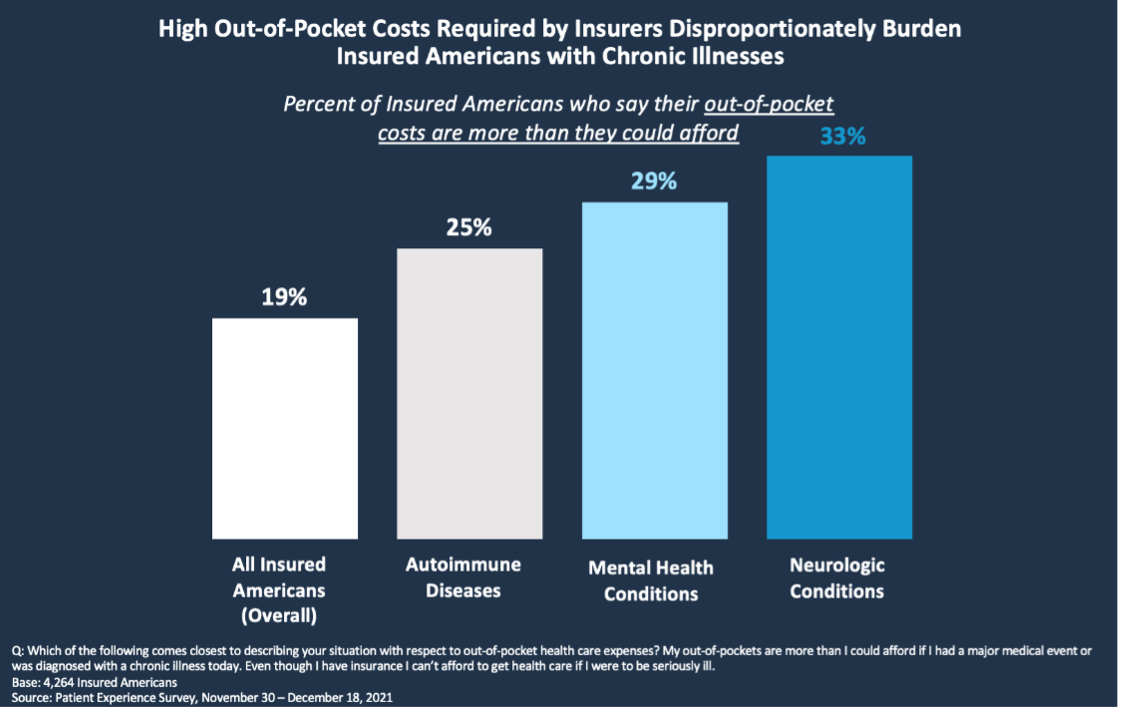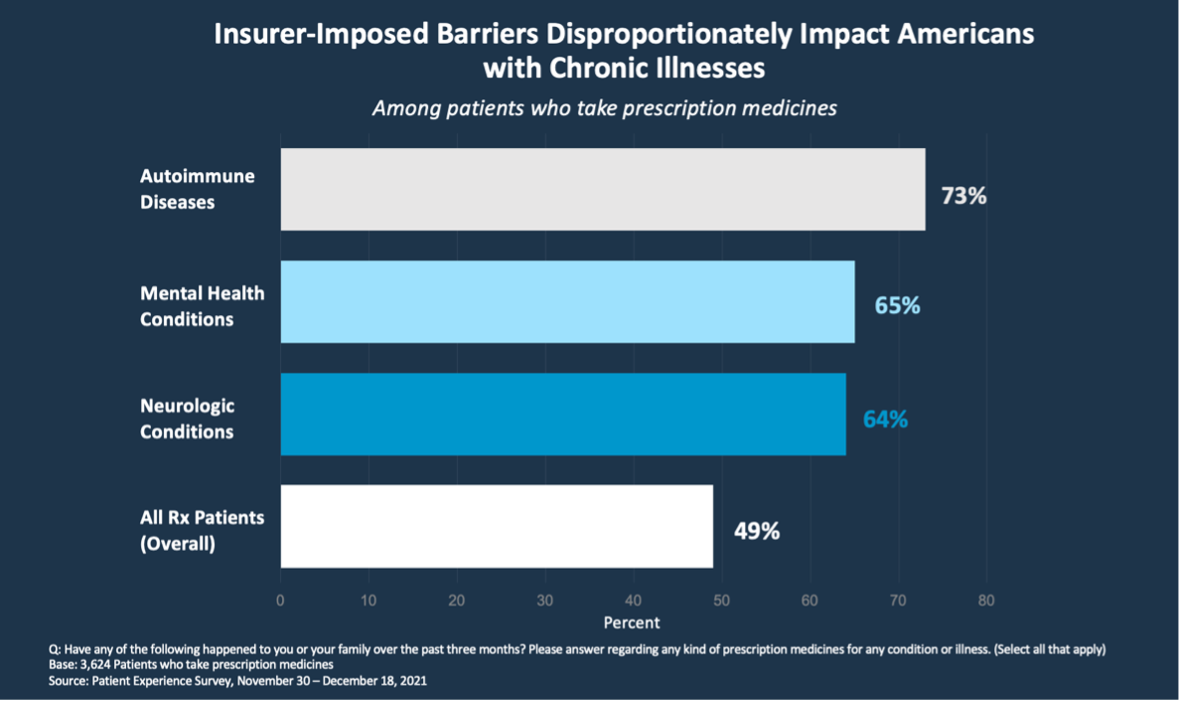Study finds insurance barriers disproportionately burden patients with chronic illness

Study finds insurance barriers disproportionately burden patients with chronic illness.

Study finds insurance barriers disproportionately burden patients with chronic illness.
A recent Patient Experience Survey found that Americans with serious chronic conditions, including autoimmune diseases, mental health conditions and neurologic conditions were more likely than all insured Americans to report facing unaffordable out-of-pocket costs. These patients were also more likely to experience insurer-imposed barriers, like prior authorization and fail first. Accessing the medicine patients need is simply too burdensome for many Americans struggling with chronic illness.
Here are three critical health insurance challenges facing patients with chronic illnesses.
1. Insured Americans managing chronic illnesses are disproportionately likely to report challenges affording their out-of-pocket costs. A quarter of Americans with autoimmune diseases, nearly a third of patients with mental health conditions and a third of patients with neurologic conditions reported that their out-of-pocket costs were more than they could afford.

2. Patients with chronic illnesses report face more insurer-imposed access barriers that deny or limit access to their medications. Among patients taking prescription medicines, those with autoimmune diseases (73%), mental health conditions (65%) or neurologic conditions (64%) were disproportionately likely to report facing insurance-imposed barriers, like prior authorization and fail first, compared to all patients who take prescription medicines (49%).

3. Insurance practices resulting in higher out-of-pocket costs make it difficult for patients to access the medicines their doctors prescribe and disproportionately burden patients with severe and chronic conditions. Compared to all patients who take prescription medicines (51%), patients with autoimmune diseases (60%), mental health conditions (71%) and neurologic conditions (68%) were significantly more likely to report at least one time in the past 12 months when they did not take a treatment as prescribed, such as skipping doses or cutting pills in half. To address the challenges patients face accessing their care, nearly twice as many insured Americans said they would prefer paying lower out-of-pocket costs (such as copays, coinsurance and deductibles) for medicines compared to paying a lower premium each month.
Americans managing serious chronic conditions face insurance-imposed barriers that make it difficult for them to access the care they need. Policymakers should consider the patient experience when discussing health care reforms, to ensure that solutions meaningfully address the challenges patients face.
Read the full Patient Experience Survey report here. For more on PhRMA’s patient-centered solutions, visit PhRMA.org/BetterWay.
+++
PhRMA’s Patient Experience Survey is a research initiative designed to explore the barriers patients face in accessing health care and prescription medicines. Launched in the wake of the coronavirus pandemic, which exposed many of the vulnerabilities of our health care system, the survey reports the lived experiences of 5,000 Americans. Among the sample of 5,000 Americans are patients impacted by health conditions like autoimmune, blood or immune diseases, including but not limited to: anemia, celiac disease, Graves’ disease, Hashimoto's thyroiditis, hemophilia, lupus, sickle-cell anemia; mental health conditions, including but not limited to: Alzheimer’s disease, anxiety or panic disorder, bipolar disorder / manic depression, dementia, obsessive-compulsive disorder, post-traumatic stress disorder, schizophrenia; and, neurologic or nervous system conditions, including but not limited to: epilepsy/seizure disorder, amyotrophic lateral sclerosis (ALS), multiple sclerosis, Parkinson’s disease, stroke, traumatic brain injury.